1. Cryptocurrency ATMs
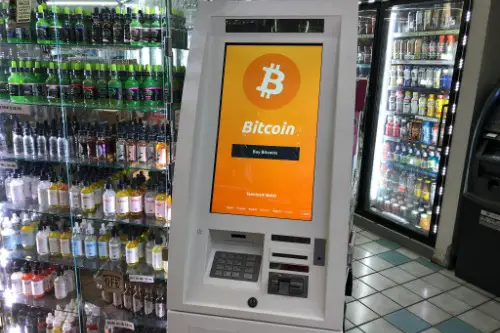
Crypto ATMs are popping up in cities around the world, letting people buy or sell digital currencies on the spot. But in states like Hawaii and New York, strict regulations make it nearly impossible to operate them without jumping through tons of legal hoops. New York’s BitLicense, for example, requires crypto businesses to meet incredibly rigorous standards. Most companies just skip the state entirely.
In Hawaii, virtual currency businesses have to hold cash reserves equal to their crypto holdings, which isn’t financially practical for most operators. That effectively bans crypto ATMs unless laws change. These restrictions are aimed at consumer protection, but they also keep modern financial tools out of reach. So in some states, your digital wallet stays strictly online.
2. Tesla’s Full Self-Driving Mode
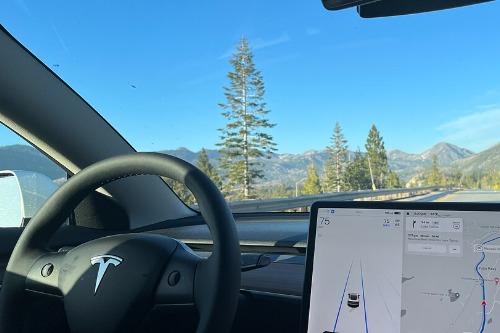
Self-driving cars sound like something straight out of The Jetsons, but Tesla’s Full Self-Driving (FSD) feature isn’t fully embraced everywhere. States like New York still require drivers to keep at least one hand on the wheel, limiting the real potential of the tech. In other places, regulatory red tape has slowed down approval for testing and usage. It’s not that the tech is banned outright—it’s more like it’s stuck in limbo, according to Caroline Petrow-Cohen from The Los Angeles Times.
What’s holding it back is a combo of safety concerns and insurance complications. States are hesitant to fully greenlight FSD while liability rules are still murky. If a robot crashes your car, who pays? Until lawmakers figure that out, Tesla’s boldest software won’t be roaming freely in every state.
3. Raw Milk Vending Machines
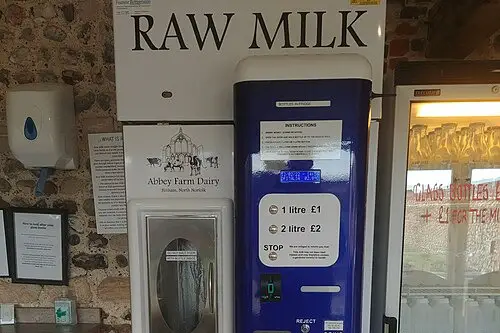
Imagine grabbing a bottle of fresh raw milk from a sleek vending machine—totally normal in parts of Europe. But in the U.S., more than 20 states heavily restrict or outright ban the sale of raw (unpasteurized) milk, especially through machines, according to Joseph Stromberg from Vox. Even though small farms are pushing for these systems, citing freshness and health benefits, public health departments aren’t buying it. The fear of bacterial contamination is still strong.
Some states allow raw milk sales at farms, but drawing the line at machines seems odd. The concern is mainly about unattended sales and lack of oversight. But with modern refrigeration and monitoring, advocates say the bans are outdated. Still, the legal landscape for raw milk remains surprisingly churned up.
4. Direct-to-Consumer Car Sales

You’d think buying a car online directly from the manufacturer would be as easy as ordering shoes. But in many states—including Texas and Michigan—companies like Tesla and Rivian still can’t sell directly to consumers without going through a dealership, according to Zak Edson from Dallas News. These laws were originally created to protect local dealerships from big manufacturers, but they’re now blocking the very innovation that consumers are asking for. It’s a major sticking point in the fight between tech-forward automakers and legacy dealership networks.
Some of these rules have been loosened, but others remain stubbornly in place. That means people in certain states have to jump through hoops just to buy an electric car online. Ironically, it’s often easier to buy a car online in Europe than in some U.S. states. Until more laws change, “cutting out the middleman” isn’t always an option.
5. Rainwater Harvesting Systems

Collecting rainwater sounds like the kind of eco-friendly move your sustainability-minded friend would love. But believe it or not, it’s still partially illegal or heavily restricted in some states like Colorado, according to Alek Eccles from the National Tank Outlet. Historically, water rights laws in the Western U.S. treated rainwater as belonging to rivers and downstream users, not the person collecting it. So even harmless rooftop barrels ran afoul of water use regulations.
Colorado has eased up in recent years, but limits remain—residents can only collect rain from rooftops and store up to 110 gallons. Other states like Nevada have similar restrictions, especially in places where water is scarce. The laws are gradually modernizing, but they still reflect 19th-century priorities. That means today’s eco tech can still run into yesterday’s legal walls.
6. Facial Recognition in Public Spaces

Facial recognition has made huge strides and is popping up in airports, stores, and even stadiums. But some states and cities—like San Francisco, Portland, and Boston—have put bans on government use of the tech in public areas, according to Jake Laperruque from Tech Policy Press. The concern is mostly about privacy and potential abuse by law enforcement. Critics worry about constant surveillance and misidentification, especially for people of color.
Even though the tech is advancing, many places are choosing to hit pause until regulations catch up. These bans don’t always cover private companies, though, creating a confusing legal patchwork. So in one city, your face might unlock a concert ticket, while in another, the same system is illegal. It’s a case of innovation outpacing comfort levels with how it’s used.
7. Home DNA Testing Kits for Health

Spitting in a tube to get a breakdown of your genetic risks feels like sci-fi meets self-care. But not all states are cool with direct-to-consumer health testing kits like those from 23andMe. In places like New York and Maryland, strict regulations mean companies need special permits to offer these tests, and results might even have to be reviewed by a licensed physician. The goal is to ensure accuracy and prevent misinterpretation.
That might make sense medically, but it definitely slows things down for curious consumers. Some states see these tests as diagnostics, not just personal insight. So while you can learn your ancestry just about anywhere, learning your risk for Parkinson’s might be a legal headache. It’s a modern tech stuck in old-school bureaucracy.
8. Smart Glass Windows

Smart glass technology lets windows tint automatically based on sunlight or temperature—fancy, efficient, and ultra modern. But in some states, building codes haven’t quite caught up, especially in places like California and Florida, where specific visibility and safety standards make installation tricky. For example, some local laws require a minimum level of window transparency for emergency visibility. That means your sci-fi windows might not pass inspection.
While smart glass is approved in commercial buildings more often, residential use still hits red tape in several areas. Some building inspectors don’t yet recognize smart glass as compliant with older glazing standards. So even if the tech is available and energy-efficient, it might not be legal in your home renovation—at least not without some extra paperwork. It’s a classic case of the law lagging behind innovation.
9. High-Powered E-Bikes

Electric bikes are having a moment, especially in urban areas where they’re an eco-friendly alternative to cars. But not all e-bikes are treated the same—some high-powered models that go faster than 28 mph are banned or restricted in states like New York and Pennsylvania. These bikes blur the line between bicycles and motor vehicles, and the rules haven’t caught up. Riders often find themselves navigating a patchwork of local ordinances.
Manufacturers have created different classes of e-bikes, but enforcement varies widely. In some states, a top-speed e-bike might be fine on a bike trail, while in another, it could get you fined. It’s confusing for riders and limits innovation in transportation. Until states agree on classifications, the turbo-charged two-wheelers are stuck in a gray zone.
10. DIY Medical Testing Devices

Home health tech has come a long way—there are now devices that can test your blood, urine, or vital signs with clinical-level accuracy. But using or selling them without FDA approval is a big no-no in many states, especially if the data is meant to guide treatment. For example, some rapid blood-testing devices for diabetes or cholesterol monitoring aren’t legally approved for home use. Even if the tech exists, it’s often classified as a medical device and subject to federal and state health laws.
States like California are particularly strict about what can be sold over-the-counter. That means some of the most cutting-edge personal health tools are technically illegal without a doctor’s involvement. It’s frustrating for health-conscious users who want more autonomy. But regulators argue that misuse or misinterpretation could do more harm than good.
11. Firearm-Tracking Smart Guns

Smart guns that only fire when held by an authorized user seem like a no-brainer for safety. Yet ironically, laws in states like New Jersey actually delayed their development. In 2002, New Jersey passed a law mandating that once smart guns were available, only they could be sold—causing backlash from gun rights groups and gun stores. That pressure led manufacturers to halt innovation to avoid triggering the law.
Even though the law was revised in 2019 to encourage rather than mandate smart gun sales, the damage to public perception lingered. Other states still have unclear or unfriendly regulations regarding firearm tech. As a result, smart guns remain mostly prototypes or niche products. Innovation stalled because the legal spotlight turned out to be more of a deterrent than a safeguard.
12. Internet Ballot Submission for Voting
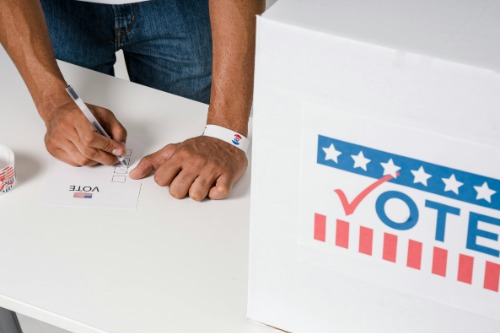
Online voting seems like it would make things faster, easier, and more accessible—especially for overseas military personnel. But most states still ban or severely limit the ability to submit ballots via the internet. The main issue? Security. Experts fear hacking or vote manipulation, and many states simply don’t want to take the risk.
A few states like Utah and West Virginia have tested online voting for specific groups, but even those programs are tightly controlled. For the general population, it’s still a pen-and-paper process in most places. So while tech exists to make voting digital, the legal framework hasn’t budged much. For now, the ballot box remains an analog ritual.
13. Solar Panels That Bypass the Grid
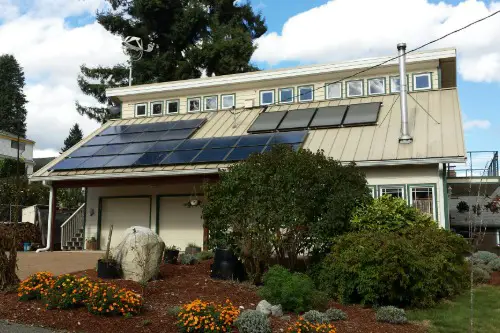
In theory, going fully off-grid with solar panels sounds empowering and eco-friendly. But in some states, including Florida and Mississippi, laws and utility rules require you to stay connected to the power grid. Even if you generate more electricity than you use, disconnecting can be considered illegal or against local codes. Utility companies argue that full grid independence threatens system reliability.
The laws vary, but some places mandate minimum grid usage fees or prevent “islanding”—a term for operating your solar system independently. That means your futuristic, self-powered home still has to rely on traditional infrastructure. Critics call it utility protectionism, while supporters say it ensures fairness and safety. Either way, full energy autonomy remains surprisingly restricted.
14. High-Tech Tiny Homes

Tiny homes have exploded in popularity thanks to minimalism, affordability, and smart design features like composting toilets and solar roofs. But zoning laws and building codes in states like New York, Connecticut, and even parts of California make them difficult—sometimes illegal—to live in full-time. Many local governments require minimum square footage for residential dwellings. Others prohibit mobile tiny homes from being classified as permanent residences.
It’s not the tech in these homes that’s the problem—it’s the fact that they don’t fit into traditional definitions of housing. Composting toilets and off-grid features can also clash with plumbing and sewage codes. Some cities are loosening restrictions, but it’s still a legal gray area in many places. Until zoning laws evolve, your tiny dream house might only be legal as a backyard guest room.
15. High-Capacity Electric Scooters
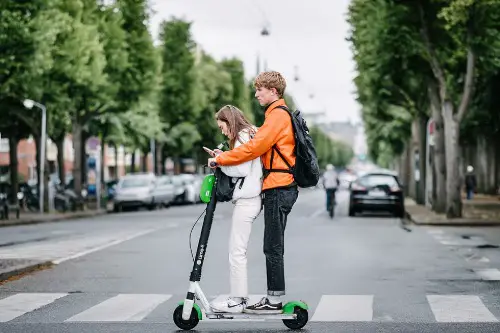
Electric scooters have become a staple in cities—zippy, compact, and efficient. But high-capacity models with faster speeds and bigger batteries are banned or restricted in places like Pennsylvania and parts of Massachusetts. They’re often classified as motor vehicles, which means they require registration and insurance—something most casual users don’t expect. That legal limbo makes it hard for companies to expand or innovate.
The rules were written with mopeds or gas-powered scooters in mind, not sleek lithium-powered commuters. That’s left some of the most powerful and capable models off-limits for public roads. Until states update their classifications, riders are limited to low-speed models. So even if you want to zoom, the law might make you crawl.


